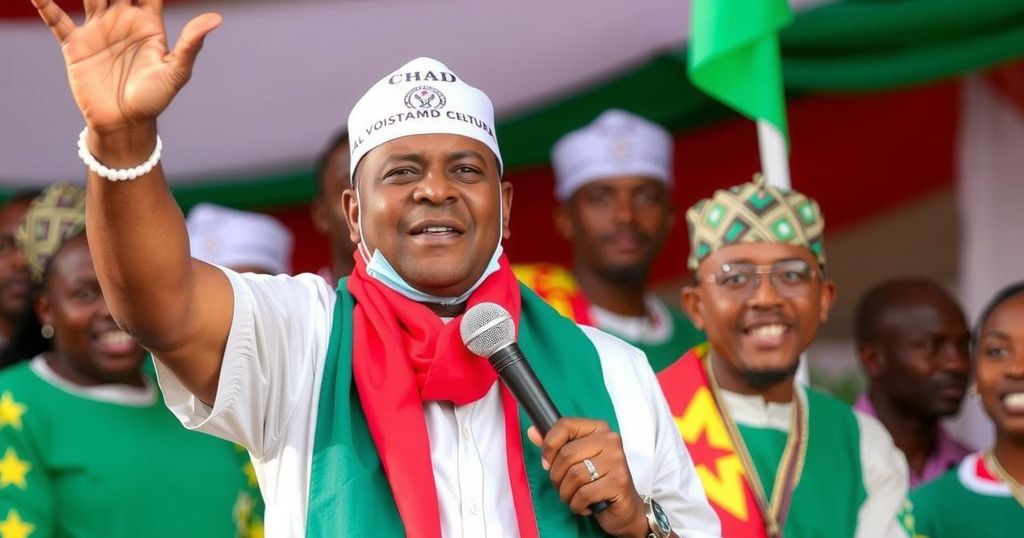Chad’s Ruling Party Secures Majority Amid Opposition Boycott in Elections
Chad’s ruling party won a majority in recent parliamentary elections that were boycotted by the main opposition, leading to concerns about electoral legitimacy. The elections were intended to foster decentralization post-military takeover by President Mahamat Idriss Deby, who succeeded his father. Opposition groups criticized the elections, calling them a ‘charade’ amid ongoing security issues.
In a parliamentary election held last month, Chad’s ruling party secured a significant majority, despite a boycott from the principal opposition. This election was deemed crucial for solidifying President Mahamat Idriss Deby’s political authority, following his rise to power as a military leader in 2021 after the death of his father, Idriss Deby Itno, who was in office for thirty years. Authorities described this election as a step towards decentralization, aimed at redistributing power to regional and municipal levels. Nonetheless, the absence of prominent opposition voices, particularly from the Transformers party, has raised concerns about the legitimacy and credibility of the electoral process, echoing previous doubts expressed during the last presidential elections.
As Chad navigates significant security challenges, including extremist violence and diplomatic tensions with France, the outcome of this election bears substantial implications for the nation’s political landscape and governance. With many opposition parties labeling the election a “charade” and warning of potential repeat failures from past elections, the prevailing political atmosphere is one of apprehension and skepticism, undermining the transition towards democratic practices in the country.
Chad has experienced a tumultuous political history, particularly following the death of long-standing President Idriss Deby Itno in 2021, which led to a military takeover by his son, Mahamat Idriss Deby. The recent parliamentary elections form part of a broader initiative to transition the nation towards democracy and decentralization, emphasizing the distribution of political power beyond the national government to regional entities. However, significant skepticism over electoral integrity remains, especially from opposition groups who feel marginalized in the political discourse.
The ruling party’s majority victory in Chad’s parliamentary election, amidst a boycott by opposition groups, could potentially reinforce President Mahamat Idriss Deby’s hold on power. While the government touts this electoral process as a step toward decentralization, the opposition’s concerns regarding the legitimacy of these elections hint at a broader struggle for democracy in Chad, especially amidst ongoing security challenges and political tensions.
Original Source: www.washingtonpost.com




Post Comment